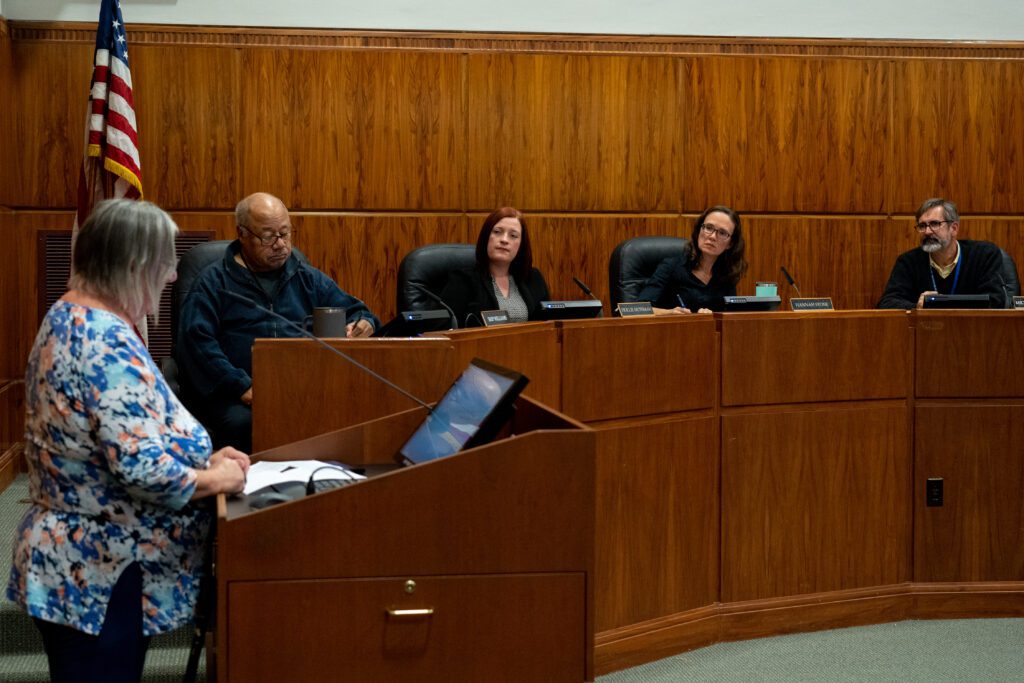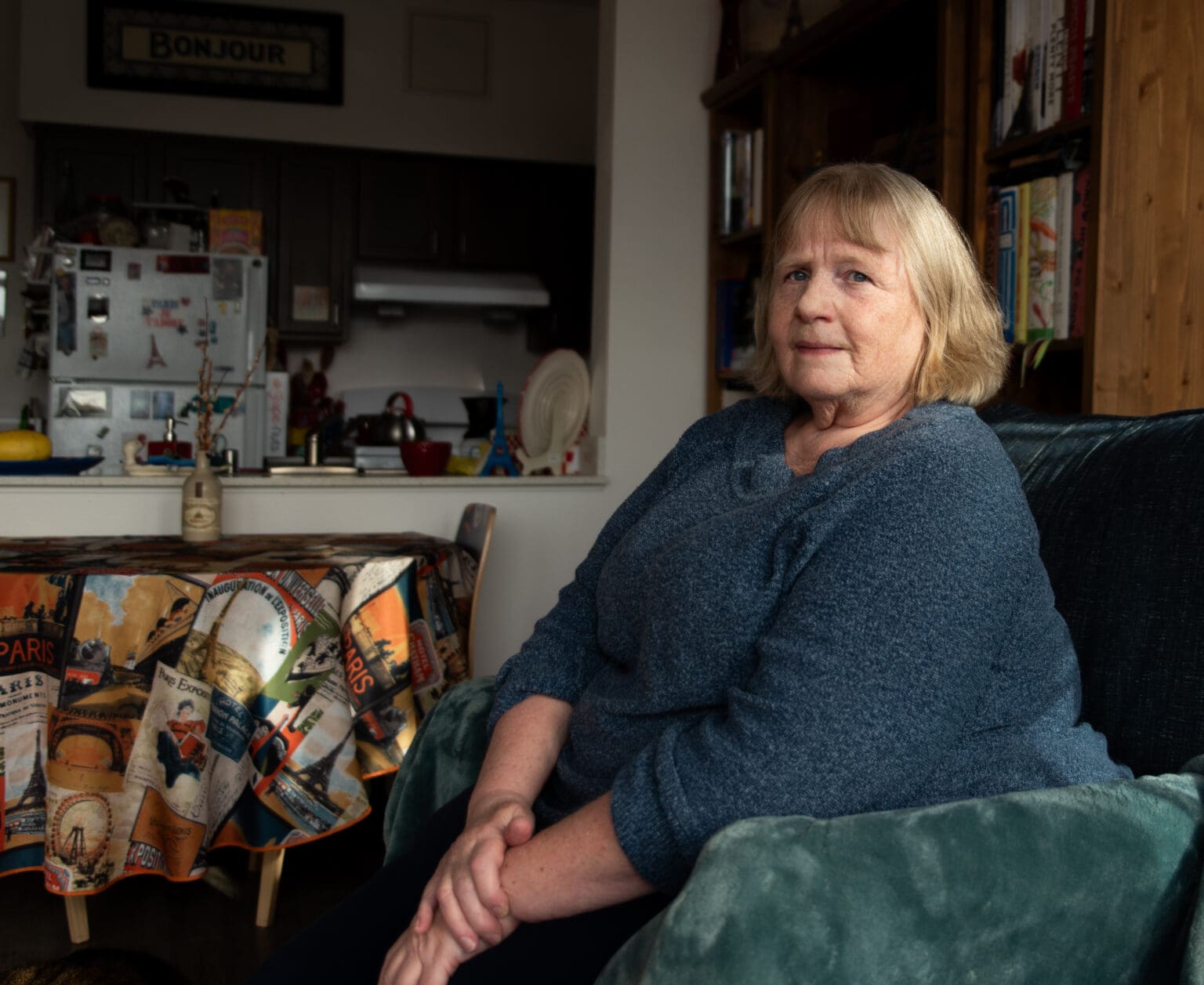For six months, Karina Davidson had some wiggle room in her budget.
The Eleanor Apartments resident received rental assistance through subsidies from the Opportunity Council starting in January this year, until the pandemic-era program ended in June.
Davidson, 70, said the program allowed her to pay her bills and save a bit of money. Now, with little rental assistance currently available in Whatcom County, she’s worried about January, when her rent will go up 4% in a building-wide increase. With that change, Davidson will be spending 54% of her fixed income on rent, making her one of many seniors who are severely financially burdened by their rental costs.
“[The rental assistance] put me in a more normal situation where every cent wasn’t accounted for,” Davidson said. “When you’re paying over 50% of your income to rent it gets really sketchy. I get the bills paid and then there’s just virtually nothing.”
She’s one of hundreds impacted by the end of pandemic-era rental assistance programs in Whatcom County, which left behind a bleak rental landscape. More than 10,800 renter households are cost-burdened in Bellingham, according to a city report, about 54% of all renters. Sixty-three percent of seniors who rent in Bellingham are cost burdened.
Those federally-funded rental assistance programs over the last few years poured hundreds of millions of dollars into helping low- and middle-income people pay their rent. People who made at or below 80% of area median income and were behind on a rent payment were eligible to have the current month’s rent paid, and three months in advance. The program could also pay past-due rent.
Now, the only widespread rental assistance program in the county can’t meet the demand.
A fraction of the funding
The Opportunity Council’s Homeless Prevention Program launched in August to serve some people who were previously helped by the mammoth programs in place during the COVID-19 pandemic. The homeless prevention program provides temporary rent subsidies, and case management services, and supports securing housing for qualifying households.
In October, the agency was getting calls from hundreds of people trying to access the homeless prevention program every week, said Debbie Paton, community services director at the Opportunity Council.
As of Oct. 16, the homeless prevention program is full due to funding limitations. Lorena Shah, director of operations at the Opportunity Council, advises people to check back in December.
“It’s been very dramatic, the need in the community after the end of the federally-funded rental assistance programs,” Shah said.
Shah said the council is anticipating serving between 79 and 90 eligible households from August of this year to June 2024 through that program. Households undergo a screening process to determine eligibility and need before they’re selected.
The Opportunity Council’s now-defunct pandemic rental assistance program gave out between $1 million and $2 million per month to eligible Whatcom County residents.
Funding came from the U.S. Department of Treasury’s Emergency Rental Assistance Program, and Opportunity Council had a contract with the county to administer that program. The Opportunity Council’s new program has only $1,895,000 in funding from the Washington State Department of Commerce until June 30, 2025, said Chris D’Onofrio, the housing program supervisor at Whatcom County Health and Community Services.
“This is a dramatic decrease from the amount of money available through federal funding packages for eviction prevention that were available over the last couple of years,” D’Onofrio said in an email.
Northwest Youth Services also ran a rental assistance program for youth, as a subgrantee of the Opportunity Council’s funding. Northwest Youth Services staff member Addison Ausley said the ending of the rental assistance funding in June was difficult to witness. She said she worries about the single-mom recipients, some of whom have gotten evicted now or had to move back into vulnerable living situations.
“It’s really disheartening to see them get out of that situation and be on their own and try to do what’s best for them and their children, and then the program runs out and there’s nothing else we can do, so then they have to backtrack into that unsafe situation again,” she said.
To more properly address the overwhelming need for rental assistance, Paton said there needs to be “deep investment” on the federal level in housing vouchers and long-term rental assistance.
D’Onofrio said the county continues to advocate to the state for more funding for housing programs but said they don’t expect to see the level of funds that existed during the pandemic unless the federal government contributes significantly.
The state is looking into rent stabilization measures for tenants of affordable housing units that receive state funding, with an interim report to come in December.
Another option in the works
For now, the Opportunity Council’s now-full program is nearly the only option for rental assistance.
But Bellingham City Council has authorized funds for another one.

The city is working to add $384,000 from the housing levy and the affordable housing sales tax to the Opportunity Council’s existing prevention and diversion program. The allocation came following a report to council on the housing cost burden for renters in Bellingham, specifically in low-income housing tax credit buildings, like the Eleanor.
The prevention and diversion program already provides support to seniors and families with children, but these new funds will allow for seniors and families with children who make below 50% area median income, and pay more than 50% of their income for rent in Bellingham, to access some rental assistance, according to the Opportunity Council.
About 20% of the $384,000 will go toward staffing the program, according to the city. The program is designed for limited assistance, for a period of no more than nine months.
Total capacity for the program will be 60 clients, dependent on how long clients need support, the city said.
Shah said the funds will be “available soon” for seniors and families with children in Bellingham who meet eligibility criteria. Screening will be done through the homeless prevention screening line at 360-746-3826.
Some seniors at Eleanor Apartments are concerned the program won’t be targeted enough to people who need the money, and expressed concern about access through a phone line, as it was difficult to get through the line for the Homelessness Prevention program.
“I think it’s crucial that those with the highest rent burden are served first,” said Catherine Chambers, an Eleanor Apartments resident who spoke to city council in the public comment period Monday, Oct. 30.
The city affirmed that the program is intended to be targeted.
“We do have some interest in ensuring that it’s able to help people who are cost burdened, not just people who are behind on rent,” Samya Lutz, the city’s Housing & Services Program Manager, said at a September city council committee meeting.




